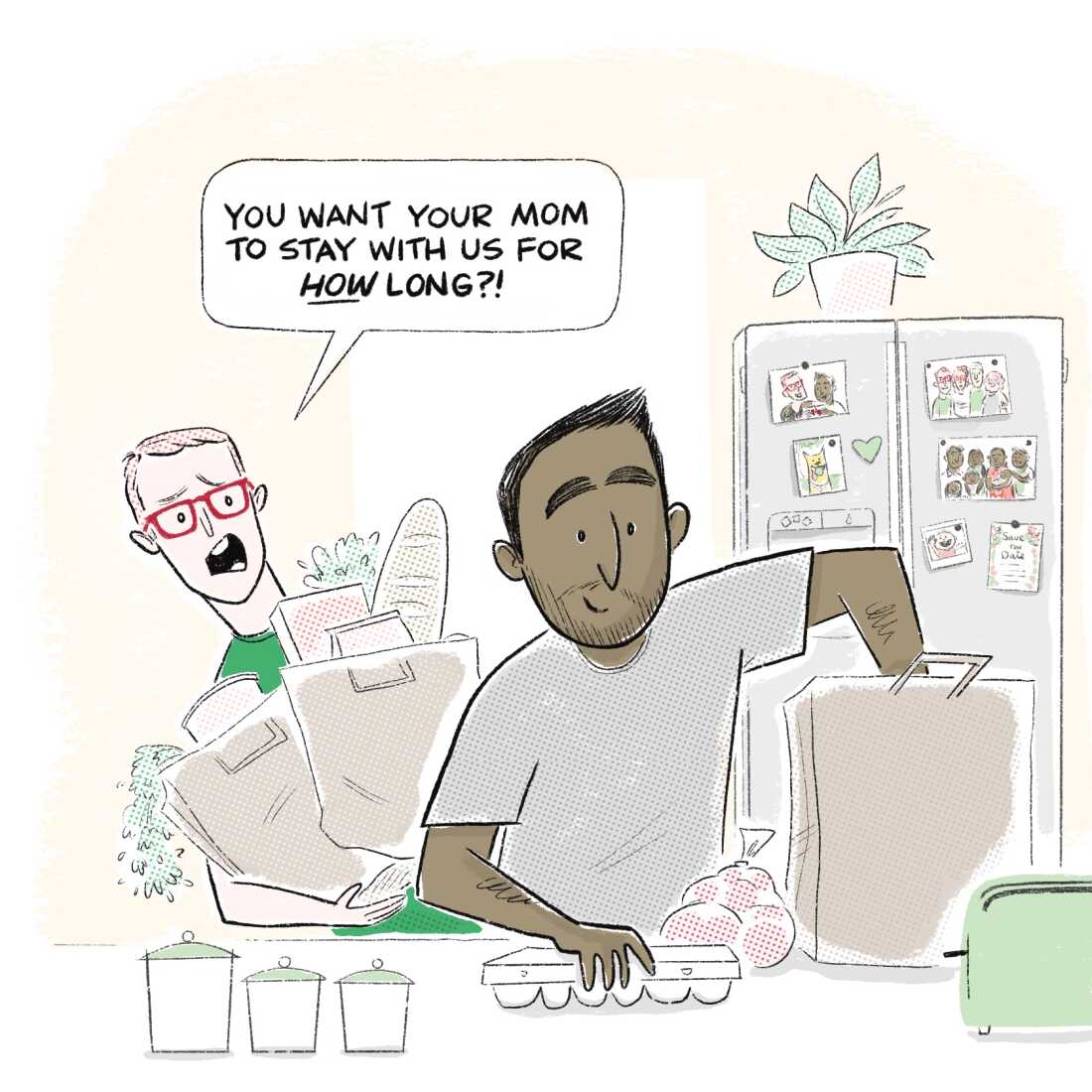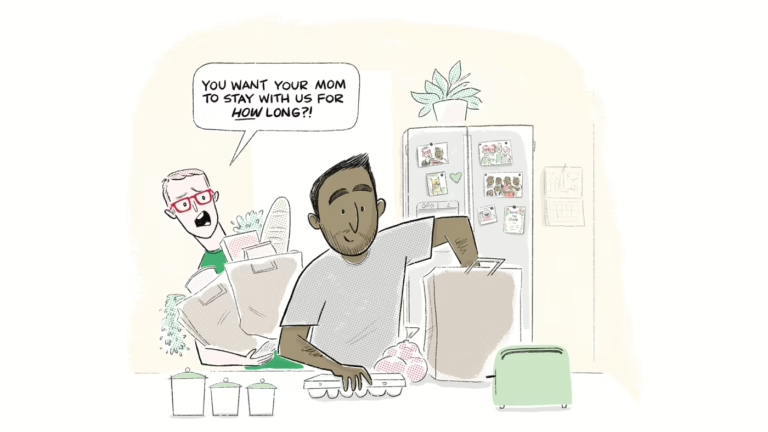Davon Loeb (left) shares that his childhood meals often included Chef Boyardee, whereas his wife Jennie (right) was raised on her Italian mother’s homemade sauces and meatballs. Together with their two children, they are weaving their diverse backgrounds into a shared family culture.
Anika Orrock for NPR
hide caption
toggle caption
Anika Orrock for NPR
When Jennie and I tied the knot, our love overshadowed any concerns about our racial differences. However, I hadn’t realized the effort required to navigate an interracial relationship.
My heritage is a blend of Black, white, and Jewish roots, while Jennie’s background is Italian and Irish. Over more than a decade together, we’ve faced challenging conversations about race, parenting our biracial children, and confronting biases within ourselves, our families, and society.
These experiences have ultimately strengthened our bond, though it took time to develop healthy ways to communicate about these sensitive topics.
Whether you’re newly dating someone from a different race or have been in an interracial partnership for years, I’ve compiled expert insights on handling cultural conflicts, misunderstandings, and building a unique family identity.
With dedication and openness, interracial couples can flourish. Nina Sharma, author of The Way You Make Me Feel: Love in Black and Brown, emphasizes that curiosity is key-being willing to explore each other’s cultures through honest dialogue and mutual exchange.
Below are four vital discussions to help you navigate the complexities of interracial relationships.
Discussion 1: Exploring Our Differences
Discussing racial and cultural distinctions can feel uncomfortable for some couples, but avoiding these topics can lead to misunderstandings later on. Kaoru Oguro, a psychotherapist specializing in interracial couples, highlights the importance of recognizing how race and power dynamics influence your relationship.
Early conversations might include questions like: Can you teach me about your native language? Have you ever felt excluded because of your skin color? How do you describe your hair texture?
Failing to address these differences upfront can cause conflicts down the line, such as: What does your family say about me in their language? Why do you worry about being stopped by the police? Is it really necessary to maintain your hair routine weekly?
For couples who have been together longer, deeper questions might arise: What spiritual or religious beliefs do you hold? What stereotypes or biases do you carry? Which family traditions are important to preserve? These discussions help shape your shared future.
Discussion 2: Creating Our Unique Family Culture

Once you’ve acknowledged your differences, explore each other’s cultural backgrounds and decide which elements you want to honor together. Oguro stresses that this process isn’t about one culture dominating but about blending and co-creating a family identity that feels authentic and respectful to both partners.
For me, this co-creation is one of the most rewarding aspects of an interracial relationship. Jennie and I nurture our children’s diverse heritage by sharing stories of Black trailblazers like astronaut Mae Jemison, enjoying traditional Italian Sunday dinners, and sending them to a Jewish summer camp to connect with their roots.
Here’s a creative exercise to inspire your own family culture: imagine what your blended traditions might look, sound, and taste like. Perhaps your family gatherings feature a mix of Afrobeat and Celtic folk music. Maybe the aroma of spicy jerk chicken mingles with the zest of lemon herb roasted potatoes. The textures could range from the softness of silk scarves to the warmth of handwoven blankets.
These sensory details help give your unique family culture a vivid and meaningful presence.
Discussion 3: Navigating Cultural Compromises
Differences in cultural or religious practices may require negotiation to find common ground within your family.
For example, if your partner abstains from meat on Fridays during Lent, do they expect you to follow suit? Are you comfortable with that? How will you approach this with your children?

When disagreements arise, approach them with curiosity and a willingness to understand, advises Kwame Christian, founder of the American Negotiation Institute. A helpful way to frame the conversation is: I see that we have different views on this. I understand how this affects you. I’m listening, and I want us to find a solution together.
It’s important that neither partner feels pressured to give up their cultural identity. Instead, collaborate as a team. Christian reminds us: “It’s you and me against the problem, not me against you.”
Discussion 4: Supporting Each Other in Family and Social Settings

Even if your friends or family don’t openly oppose your relationship, they may harbor unconscious biases about your partner’s race, ethnicity, or religion.
Imagine you’re at a family gathering with your Vietnamese partner, and your uncle, a Vietnam War veteran, makes an insensitive remark about Vietnamese people. How do you demonstrate solidarity with your partner?
Christian suggests preparing for these moments in advance. Discuss with your partner what kind of support they want. They might prefer you to address the comment privately, or they may want to avoid certain events altogether.
The goal is to present a united front, reinforcing your commitment to each other. Sharma shares from her experience as an Indian woman married to a Black man that even after years, societal prejudices can persist. She and her husband practice what they call “Afro-Asian solidarity,” a continuous process of mutual support and growth.
“It’s an ongoing journey,” she says, “showing your partner that you’re in this together.”
Davon Loeb is a husband, father, and author of The In-Betweens: a Lyrical Memoir. His writing has appeared in The Washington Post, Parents, Los Angeles Times, Men’s Health, The Philadelphia Inquirer, and The Best American Essays, among others.
This article was edited by Malaka Gharib with visual editing by Beck Harlan. We welcome your feedback-leave a voicemail at 202-216-9823 or email LifeKit@npr.org.
Listen to Life Kit on Apple Podcasts and Spotify, and subscribe to our newsletter. Follow us on Instagram: @nprlifekit.

















